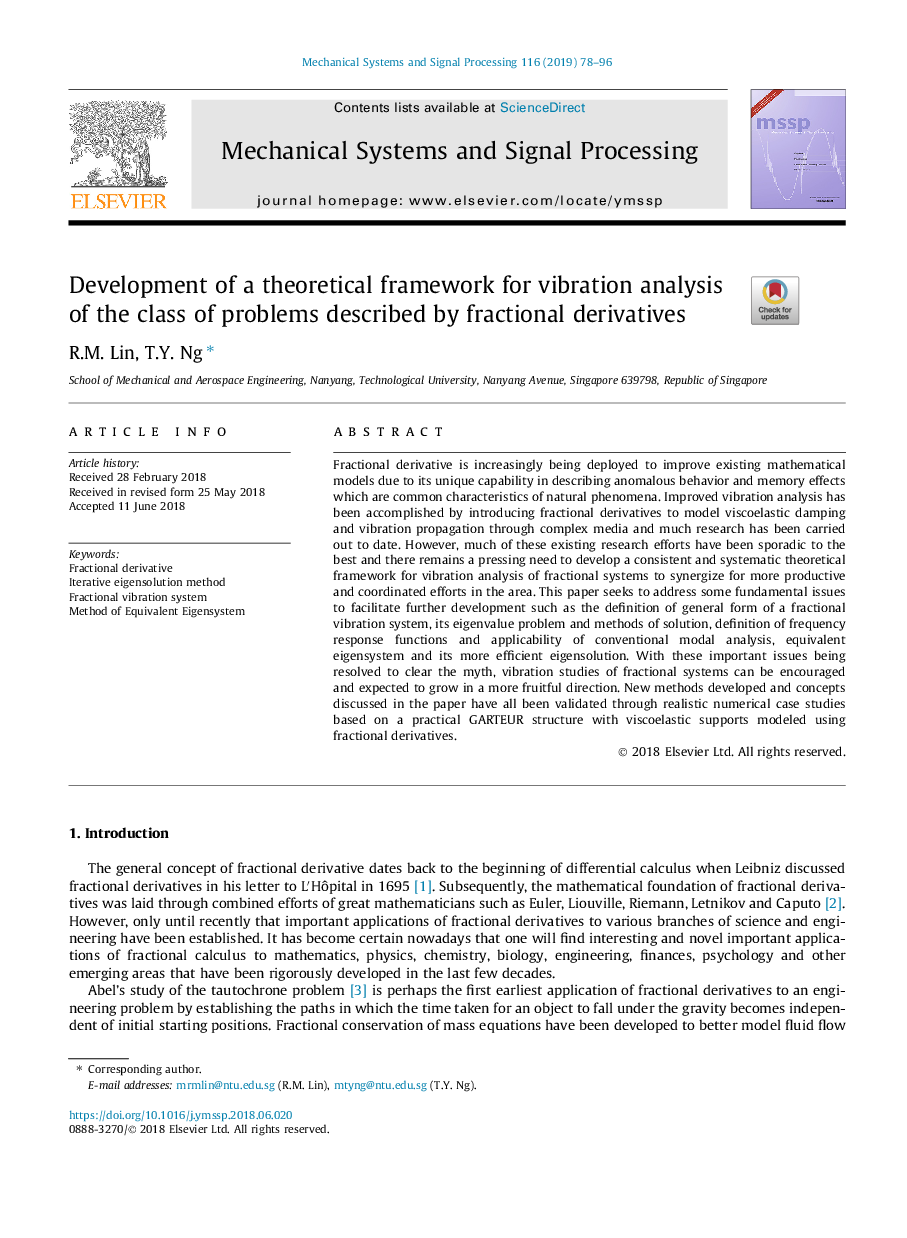| کد مقاله | کد نشریه | سال انتشار | مقاله انگلیسی | نسخه تمام متن |
|---|---|---|---|---|
| 6953343 | 1451819 | 2019 | 19 صفحه PDF | دانلود رایگان |
عنوان انگلیسی مقاله ISI
Development of a theoretical framework for vibration analysis of the class of problems described by fractional derivatives
ترجمه فارسی عنوان
توسعه یک چارچوب نظری برای تجزیه و تحلیل لرزش از کلاس مشکلات توصیف شده با مشتقات کسری
دانلود مقاله + سفارش ترجمه
دانلود مقاله ISI انگلیسی
رایگان برای ایرانیان
کلمات کلیدی
موضوعات مرتبط
مهندسی و علوم پایه
مهندسی کامپیوتر
پردازش سیگنال
چکیده انگلیسی
Fractional derivative is increasingly being deployed to improve existing mathematical models due to its unique capability in describing anomalous behavior and memory effects which are common characteristics of natural phenomena. Improved vibration analysis has been accomplished by introducing fractional derivatives to model viscoelastic damping and vibration propagation through complex media and much research has been carried out to date. However, much of these existing research efforts have been sporadic to the best and there remains a pressing need to develop a consistent and systematic theoretical framework for vibration analysis of fractional systems to synergize for more productive and coordinated efforts in the area. This paper seeks to address some fundamental issues to facilitate further development such as the definition of general form of a fractional vibration system, its eigenvalue problem and methods of solution, definition of frequency response functions and applicability of conventional modal analysis, equivalent eigensystem and its more efficient eigensolution. With these important issues being resolved to clear the myth, vibration studies of fractional systems can be encouraged and expected to grow in a more fruitful direction. New methods developed and concepts discussed in the paper have all been validated through realistic numerical case studies based on a practical GARTEUR structure with viscoelastic supports modeled using fractional derivatives.
ناشر
Database: Elsevier - ScienceDirect (ساینس دایرکت)
Journal: Mechanical Systems and Signal Processing - Volume 116, 1 February 2019, Pages 78-96
Journal: Mechanical Systems and Signal Processing - Volume 116, 1 February 2019, Pages 78-96
نویسندگان
R.M. Lin, T.Y. Ng,
